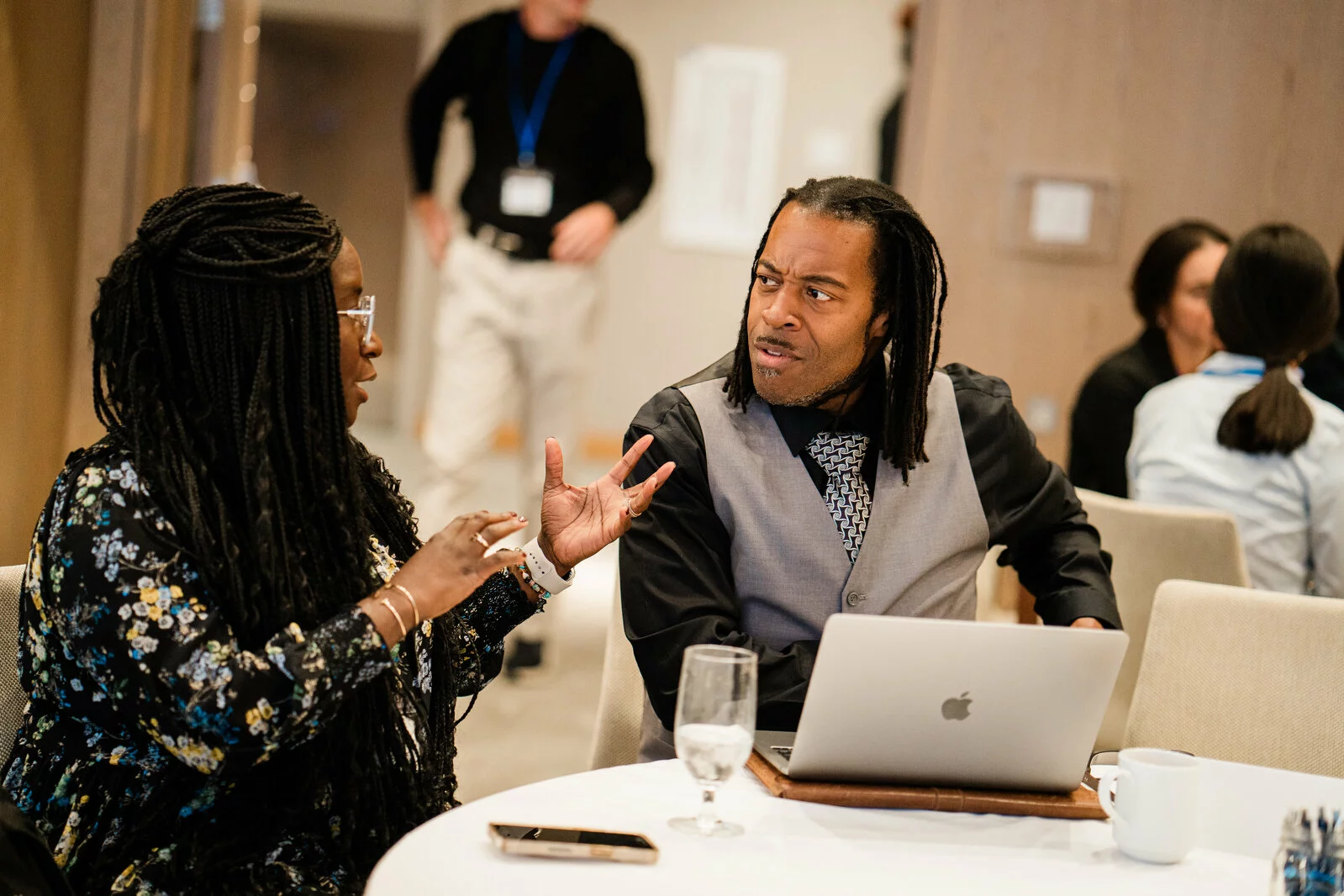
Apply for Funding
About
The Charter School Research Collaborative runs twice-yearly requests for proposals (RFPs).
The Charter School Research Collaborative supports nonpartisan research projects that investigate pressing questions in the charter school space that inform policy and practice. The collaborative issues competitive funding requests and accepts three types of proposals. Grants range from $10,000 to $500,000. The sixth request for proposals will open in 2026.
Research Focus
Research Agenda
The full research agenda can be found here.
- What are the long-term effects of charter schools?
- What is the effect of charters on non-test score outcomes? How do these effects relate to test-score effects?
- Which charter school practices have the largest effect on performance?
- How does charter performance vary across different contexts?
- How do charter school effects vary with demographic characteristics, family background, and for students receiving language and special education services?
- How do charter schools impact non-student outcomes?
- How do system-level factors, such as authorizing practices, impact charter school performance?
Conversations with more than 100 charter leaders, practitioners, policymakers, researchers, and funders led to the development of this agenda. As diverse stakeholders’ priorities continue to shift and the Collaborative progresses, the research agenda will continue to evolve.
Regions of Interest
There are 17 priority regions of interest. Projects that examine unexplored topics in one of the Collaborative’s geographic areas of interest may be given priority over similarly evaluated projects. However, projects will first and foremost be judged based on the evaluation criteria, regardless of location.
- Baton Rouge, LA
- Camden, NJ
- Colorado state
- Connecticut state
- Georgia state
- Indianapolis, IN
- Kansas City, MO
- New Orleans, LA
- New York, NY
- Newark, NJ
- Oakland, CA
- St. Louis, MO
- Stockton, CA
- Tennessee state
- Texas state
- Washington, DC
- Washington state
Timeline
Step 1
Mandatory letter of inquiry (LOI) opens
Deadline
December 15, 2025
Step 2
Submit LOI
Deadline
February 5, 2026
Step 3
Invitation to apply for full proposals sent
Deadline
February 20, 2026
Step 4
Full proposals due
Deadline
March 25, 2026
Grant Types
The Charter School Research Collaborative accepts proposals for three grant types: proposal development, pilot studies, and full research projects. Click each grant type below for additional details and example projects.
Proposal development
$10,000
Proposal development
These projects fund travel and other activities necessary to determine whether a given project may be feasible. The typical award size is $10,000. Projects should be completed within one year. For example, a researcher could apply for this size grant to determine the feasibility of a lottery study of Memphis-area charter schools. This project would establish a research partnership and requisite data-sharing agreements with five Memphis-area charter schools. Another example would be to develop a survey of charter school practices in partnership with a CMO and secure requisite data-sharing agreements with the CMO. For the first example, costs supported would include graduate student time to recruit schools and expenses to travel to Memphis to meet with prospective partner schools. For the second, costs would include time to develop the survey and expenses to travel to the partner CMO. Read about the proposal development evaluation criteria.
Pilot studies
$75,000
Pilot studies
These projects help researchers conduct a small-scale or early-stage study to determine whether a full-scale study is possible. The typical award size is $75,000. Projects should be completed within one year. For example, a researcher could apply for this size grant to collect and perform preliminary analysis of data from Memphis-area charter schools. The aim of this project would be to collect lottery data and determine whether a sufficient sample of students was randomly selected to conduct an evaluation. Costs supported would include research assistant time to clean, merge, and analyze data and faculty time to supervise the research. Another example would be to develop and pilot a survey of charter school practices. Costs supported would include survey development, translation, administration, and incentives. Read about the pilot study evaluation criteria.
Full research project
$75,000-$500,000
Full research project
These projects have a wide range of award sizes (typically between $75,000 – 500,000). Project length will vary from one to two years. All required data use agreements should be executed before applying for funding at this level. For example, a researcher could apply for this size grant to perform a mixed methods study examining Memphis-area charter schools’ impact on students’ self-efficacy, employing both a lottery-based quantitative analysis and qualitative data using surveys and focus groups. The researcher must have existing DUAs to receive lottery data from charter schools and to receive student outcomes and demographics from the state. Costs supported might include researcher time to implement a student survey; run focus groups with school administrators; collect, clean, and analyze data; and share results both via a working paper and in person with school leadership. Read about the full research project evaluation criteria.
Eligibility
Emerging and established researchers from a range of disciplines are invited to apply. Teams should be led by principal investigators who have some demonstrated success in conducting research, as demonstrated by their educational training (e.g., in economics, public policy, political science, education policy) or publications. They should also have an interest in education policy, broadly conceived, and they must be affiliated with an eligible nonprofit organization, such as an academic institution, public entity, or state or local government agency. We do not award grants to individuals.
See below for more details about eligibility for specific groups:
Graduate students in economics, public policy, and related fields are also encouraged to apply for funding and should include a letter of support from a faculty sponsor if invited to submit a full proposal. The total amount of funding for graduate students is capped at $75,000.
Funders may be part of a team applying for funding, but their engagement in the partnership must be to exclusively support the research. The project must be researcher-led, meaning that the researcher leads the development of the research questions and methodology. Funders are defined as any organization that provides direct or indirect financial support to charter schools, charter management organizations, and related work, including but not limited to: private foundations (e.g., independent, family, and operating), community foundations, and donor-advised funds (i.e., this includes both private foundations and grantmaking public charities).
Individuals or organizations are not permitted to use any funds received through this grant for lobbying purposes.
FAQs
LOIs are mandatory and will be used to determine which applicants are asked to submit a full application. The next request for proposals will open in 2026.
We require that the organization receiving the majority of the funding submits the application.
Three types of proposals are accepted, each with funding ranges.
- Proposal development (typical award size around $10,000 of direct costs);
- Pilot studies (typical award size around $75,000 of direct costs); and
- Full research project (awards range from $75,000 to $500,000 of direct costs).
Proposal development and pilot study grants are one-year grants. Full research projects are one- to two-year grants.
Budgets must be submitted using the templates provided for each grant type. We will not request a detailed budget at the time of LOI submissions. We provide example expenses in the budget template and would be happy to discuss budget questions with applicants invited to submit full applications.
Please budget direct costs only. Applicants may request indirect costs of up to 10% of total direct costs. If your organization’s approved indirect cost rate is lower than 10%, you must use the lower rate. Indirect costs will be added on top of the requested direct costs and will not count toward the maximum direct cost amount. For example, you may request up to $75,000 in direct costs for a pilot study, for a total budget of up to $82,500 including indirect costs.
There is no limit to the number of proposals an individual or organization can submit.
After each RFP period, a Blueprint-appointed review board evaluates proposals. The review board includes Carycruz Bueno, Christopher Campos, Sarah Cohodes, Sharada Dharmasankar, Drew Jacobs, Constance Jones, Lauren Morando Rhim, Jack Mountjoy, and Karega Rausch.
Applicants who receive a grant will be subject to the following requirements:
- Grantees will be required to obtain IRB approval or exemption before MIT can establish a subaward agreement to set up funding.
- MIT requires an official acceptance of the proposal and budget by your institution to set up the subaward. Applicants are encouraged to submit the proposal to their office of sponsored programs or contracts department prior to the award decision to avoid delays and ensure that your institute will accept your proposal and proposal budget.
- Once all materials have been received, it can take up to 60 days to establish the subaward. The award is paid on a cost-reimbursable basis, and spending can usually be backdated through the date of the Blueprint award letter or date of IRB approval (whichever comes later). Funds are to be used for the purposes described in the proposal narrative and proposal budget. Significant changes to the project scope, design, or budget must be pre-approved by Blueprint Labs.
- The terms of the award will be further specified in the award letter and in any subaward established with MIT. Acceptance of funding from Blueprint Labs signals your consent to these requirements. Non-compliance with these requirements could affect your eligibility for future funding from any Blueprint Labs Collaborative.
- Grantees will typically be required to submit several reports, including a brief annual progress report and a final report, both including financial data.
The sixth request for proposals will open in 2026.
There will generally be two requests for proposals (RFPs) per calendar year. Under exceptional circumstances, Blueprint will consider off-cycle proposals for all three types of proposals when researchers face time constraints due to factors outside of their control. Off-cycle proposals will face the same scrutiny as proposals submitted during the RFP round and must include a justification for off-cycle submission.
The Collaborative funds causal, descriptive, mixed methods, and qualitative research. The research question of interest should drive the methodology.
Blueprint does not provide written feedback on LOIs in advance of the official review. However, applicants can sign up for our January webinar or office hours to ask for advice and discuss questions about their LOIs.
Yes! Researchers or practitioners (e.g., charter leaders, charter authorizers) interested in finding a research-practice partner can sign up for one of Blueprint’s quarterly virtual matchmaking sessions. You can also fill out this form to access a shared resource with information about other stakeholders interested in forming research-practice partnerships.
Contact
We welcome your application questions via email. Prefer a one-on-one conversation? Sign up for office hours.

Subscribe
Sign up for MIT Blueprint Labs Charter Research Collaborative updates.